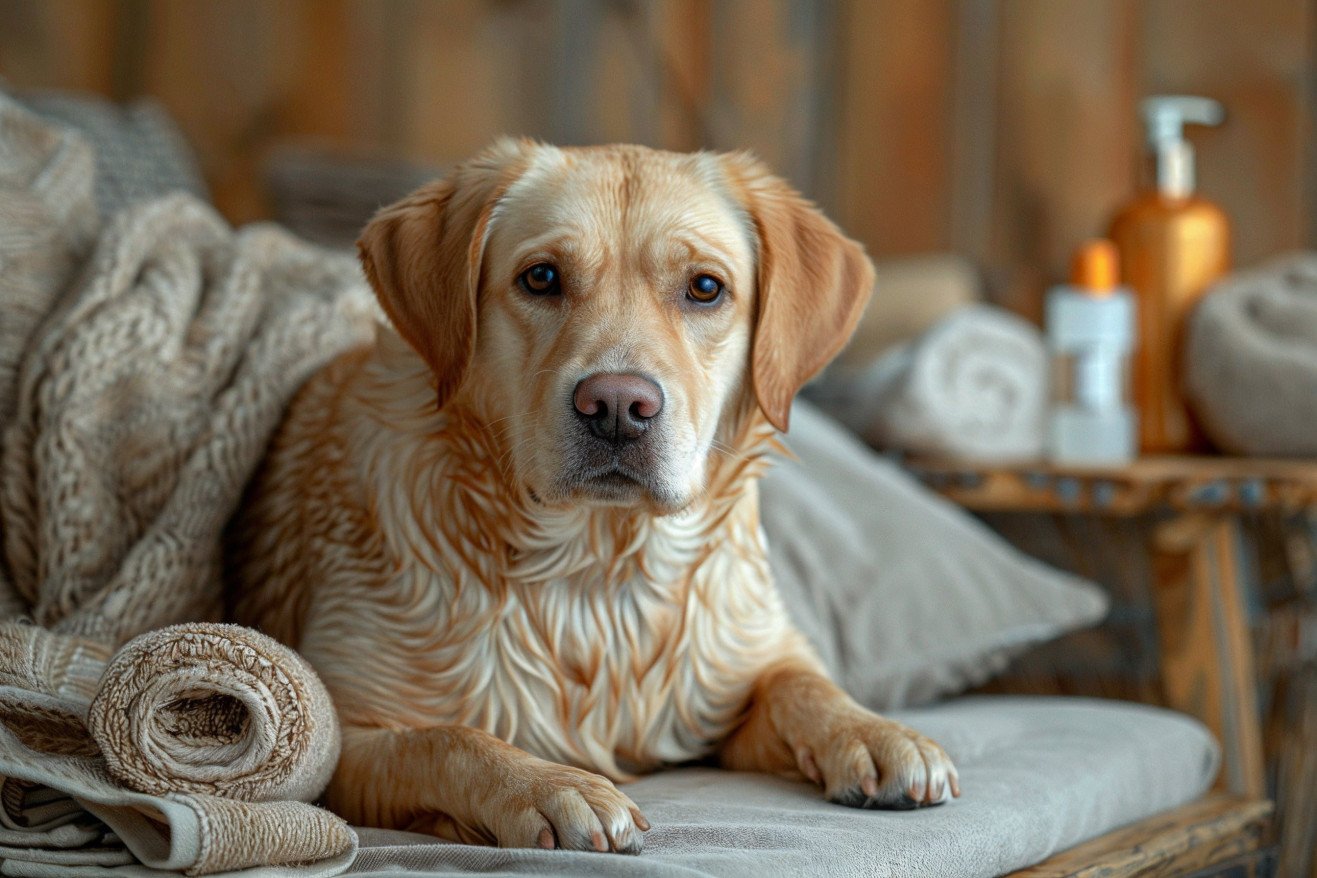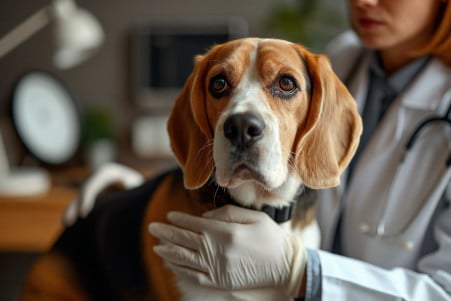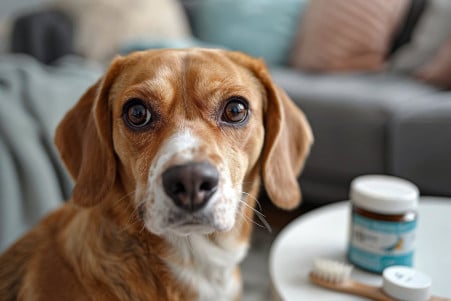Get Rid of That Fishy Dog Smell: Science-Backed Ways to Keep Your Dog Smelling Fresh
28 May 2024 • Updated 27 May 2024

If you’ve ever noticed a fishy smell that just won’t seem to go away, even after giving your dog a bath, you’re not alone. Fishy dog smell can be caused by a number of things, including diet, ear problems, skin problems, and anal gland issues. Once you know the cause, you can take steps to fix it, like changing your dog’s diet, cleaning their ears, treating an infection, or expressing their anal glands.
This article will cover a variety of science-based solutions and treatments recommended by veterinarians to help you get rid of that fishy smell once and for all and keep your dog smelling fresh. By the end of this article, you’ll have a better understanding of what causes fishy dog smells and know how to keep your dog clean and odor-free.
How can I get rid of my dog's fishy smell?
How to Express Anal Glands: A Step-by-Step Guide
If your dog's fishy smell is due to anal gland impaction, expressing the glands manually can help. However, the American Kennel Club warns that it's important to get professional instruction, especially for first-timers, because doing it wrong can lead to injury or infection.
The process involves gently squeezing the anal glands on either side of your dog's anus to release the built-up fluid. You'll need disposable gloves, paper towels, petroleum jelly, a towel, warm soapy water, and treats. The Wildest explains two methods - external, which involves squeezing the glands from the outside, or internal, which involves using a lubricated finger to reach the glands.
How often you need to do this will depend on your dog, but Dogster recommends every 3-4 weeks for dogs who are prone to impaction. Smaller dogs and overweight dogs are more likely to have issues. You can make the experience more positive for your dog by rewarding them with treats.
While expressing anal glands can help, it's important to remember that you'll also need to address the underlying cause by making sure your dog is getting enough fiber and exercise. If the problem persists, talk to your vet. If you don't do it correctly, you could cause an infection or an abscess.
Diet Changes to Promote Anal Gland Health
A high-fiber diet is essential to help the anal glands work properly and prevent impaction. Glandex explains that fiber-filled foods such as pumpkin, sweet potato, wheat germ, and flaxseed can help add bulk to the stool and promote natural anal gland expression.
Probiotics and digestive enzymes can also help maintain a healthy gut, which may help with anal gland problems. Dogster points out that a "little dose of live probiotics can do wonders for your pup's overall gut health." It’s also important to make sure your dog is getting enough water, as Glandex suggests that dogs need about 1oz of water per pound of body weight per day to keep their stool at the right consistency.
While these diet changes can be beneficial, it’s important to talk to your vet, especially if your dog is dealing with chronic anal gland issues or other digestive problems. They can help you come up with a plan that’s tailored to your dog’s specific needs and that will help you address the underlying cause of the problem.
When to Seek Professional Help
If your dog is scooting constantly, licking or biting their anal area excessively, or has discharge or an odor coming from their anal area, these are all signs that your dog's anal glands need to be addressed by a professional. Cherished Companions Animal Clinic explains that these are common signs that the anal glands are full and need to be expressed.
There are also some medical conditions that can make dogs more prone to anal gland issues. VCA Animal Hospitals explains that allergies, obesity, and a lack of dietary fiber can all make dogs more prone to anal gland impaction or infection. If your dog is in pain or the issue doesn't seem to be getting better with at-home treatments, make sure to take them to the vet as soon as possible.
If anal gland issues are left untreated, they can lead to more serious problems, including infections, abscesses, and even anal sac cancer, according to PetMD. While at-home treatments and preventive measures can help, WagWalking explains that sometimes professional help from a vet or groomer is necessary.
Home Remedies for Temporary Odor Relief
If your dog is dealing with a chronic fishy smell, there are some home remedies that can help temporarily alleviate the issue as you work to resolve the root problem. Vetnique Labs notes that baking soda is a natural deodorizer that can be added to your dog's bath or mixed with water to create a paste that can be applied to the affected area.
Meanwhile, Dogster says that medicated and deodorizing shampoos (which you can get from your vet) can be helpful in getting rid of fishy smells. You can also mix baking soda with water and spray it on your dog's fur after a bath to help absorb and eliminate any remaining odors.
If you need to get rid of the smell quickly, Dogster suggests using warm compresses or washcloths to help express any impacted anal glands. That said, it's important to note that while these home remedies can help temporarily get rid of the smell, it's important to address the root cause to find a long-term solution.
By using these evidence-based, practical methods, you can help ensure that your dog stays fresh while you focus on putting more long-term preventative measures in place.
How to Prevent Future Anal Gland Issues
Keeping your dog clean and healthy is the best way to prevent future anal gland issues and the resulting smell. Vetnique Labs suggests that regular grooming and bathing can help to keep the secretions from building up. Meanwhile, Glandex notes that exercise and weight management are important because they help to ensure that the anal glands are functioning properly and expressing naturally.
If your dog is especially prone to anal gland issues, you may want to consider adding supplements or sprays to their routine. Glandex makes supplements that include probiotics, digestive enzymes, and anti-inflammatory ingredients to support healthy anal glands. Meanwhile, Adoredbeast notes that regular professional grooming or anal gland expression can also help.
That said, it’s important to talk to your vet about the best way to prevent future anal gland issues and smells. They can help you come up with a plan that may include diet, supplements, and other strategies that are tailored to your dog’s specific needs.
Conclusion: How to Keep Your Pup Smelling Fresh and Clean
Fishy dog odors are most commonly the result of anal gland issues, including impaction, infection, or excessive secretions. To get rid of the fishy smell for good, it’s important to identify and treat the root cause of the problem.
As a result, the main solutions covered in this article include manually expressing the anal glands, making dietary changes to help prevent anal gland issues, and seeking professional help from a vet or groomer when needed. In addition, there are also preventative measures that can be taken to help keep your dog’s anal glands healthy, including regular grooming, exercise, and maintaining a healthy weight.
In the end, with the right care and attention, pet parents can successfully manage and prevent fishy odors in their dogs, ensuring that their furry friends stay fresh and clean. It’s always a good idea to talk to a vet to get personalized advice, especially if your dog has recurring issues or other health problems.


